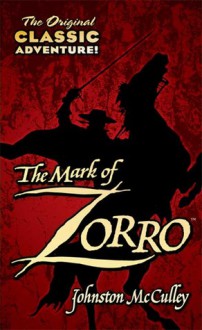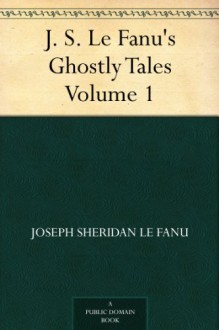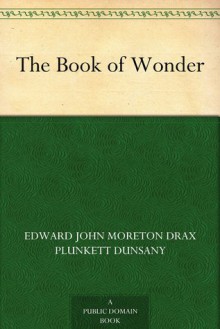
I'm no longer exactly sure where I found this ebook. Ah ha! Managed to figure it out - thank you Internet Archive (where I spend soooo much of my time):
Ebook: The Mark of Zorro (136 pages)
Info on the original 1919 story: The Curse of Capistrano (wikipedia)
Author: Johnston McCulley (wikipedia)
Zorro originated in the pulp magazine All Story Weekly, and, as most Zorro fans/historians will tell you, the character has a lot of similarities to The Scarlet Pimpernel (1908). While it wasn't used in the plot of the early Batman comics, the later ones have Bruce Wayne and his parents going to see a Zorro movie before - oh here, I'll just be lazy and quote wikipedia:
"Bob Kane has credited Zorro as part of the inspiration for the Batman. Like Zorro, Bruce Wayne is affluent, the heir of wealth built by his parents. His everyday persona encourages others to think of him as shallow, foolish and uncaring to throw off suspicion. Frank Miller's The Dark Knight Returns and The Dark Knight Strikes Again both include multiple Zorro references like the Batman inscribing a Z on a defeated foe. In later tellings of Batman's origins, Bruce Wayne's parents are murdered by a robber as the family leaves a showing of the 1940 film The Mark of Zorro, starring Tyrone Power."
I can't really remember which masked crusader I was introduced to first: Scarlet Pimpernel, Zorro, or Batman. It was whichever version I saw on tv first: either the 1934 Pimpernel, the 1940s Zorro, or the 1960s Batman (I loved the comics once I had access to them). I really loved all of them.
So I was looking up various things on wikipedia (I think I was trying to figure out the order of the Pimpernel books, before I gave up trying to read them in order), and I wandered into the Curse of Capistrano page and there (at the end) was the link for the Mark of Zorro ebook. It seemed about time that I got around to reading the origin story, so I promptly did what I always do: downloaded it onto my ereader and then forgot to actually read it.
Jump to a year (at least) later - this past week - when I'm on a five day roadtrip and I'm getting my usual "I'm not really in the mood to read what I'm already reading" fidgets, and so I think I'll be tidy and read some of the shorter works sitting on my ereader. Just to sort through the files and pretend I'm being organized. And then I remembered that I hadn't read The Mark of Zorro.
I would sooo love to say that reading this was Captain Blood (movie link! I haven't read Sabatini yet, he's on the TBR pile) and Robin Hood (yes, there's a Flynn trend there) and sword fights and - sigh. It was so very cheesy. The up side was that I could see where parts of the movies came from - and I could also see how the movies had done so much with so little. There are a few redeeming parts - like the sword fights - but then I'm a bit of a sucker for a swordfight, so it could just be me.
I definitely have to say that the cheese, oh the cheese is heavy in this one. (Never fear, I'll be quoting some examples, read on.) Or if you prefer, sappy - as in sappy romance. Again, I don't know that I'm exactly one to critique, because I've read sappy romances, many of which I'm still too shy to write much about. (So far.) The important point is - I read this stuff anyway. But it's always better if I know the level of cheese/sappiness before going in.
Of course, McCulley wrote what is known as "pulp" - and most pulp writers weren't aiming for high literature. They were aiming at finishing the work quickly so they could get paid. While some authors emerged from pulp writing to become novelists, there were a lot who didn't become well known and continued to crank out the action, adventure and romance.
This book is something I'd prescribe to those authors who worry over using the word "said" too much. Please, please, authors, do not milk the thesaurus dry in order to avoid the word said. Because you'll end up like McCulley here, who gives us characters that howl so often you'd think they were werewolves. Also roaring, shrieking, and screeching. That's mostly coming from Sergeant Gonzales:
p 3-4: ..."Curse of the entire highway and the mission chain! Sergeant Gonzales roared. "A cutthroat he is! A thief! Ha! A common fellow presuming to get him a reputation for bravery because he robs a hacienda or so and frightens a few women and natives! Senior Zorro, eh? Here is one fox it gives me pleasure to hunt. Curse of Capistrano, eh? I know I have led an evil life, but I only ask of the saints one thing now that they forgive me my sins long enough to grant me the boon of standing face to face with this pretty highwayman!"
..."More wine!" Gonzales howled. "More wine, fat one, and place it to my account! When I have earned the reward you shall be paid in full. I promise it on my word as a soldier! Ha! Were this brave and cunning Senior Zorro, this Curse of Capistrano, but to make an entrance at that door now"
The door suddenly was opened.
There were multiple paragraphs between that roar and howl, but it doesn't help make Gonzales less annoying. Granted he's supposed to be an annoying blowhard, but the writing made me roll my eyes more than the character.
And now some of the romance (cheese sample!):
p 49, Zorro and Senorita Lolita have a moment: "Senor," she breathed, "you saved me from insult. You saved me from the pollution of that man's lips. [Text has "hps"] Senor, though you deem me unmaidenly, I offer you freely the kiss he would have taken."
She put up her face and closed her eyes.
"And I shall not look when your raise your mask," she said.
"It were too much, senorita," he said. "Your hand but not your lips."
"You shame me, Senor. I was bold to offer it and you have refused.
"You shall feel no shame," he said.
He bent swiftly, raised the bottom of his mask, and touched lightly her lips with his.
"Ah, senorita," he said. "I would I were an honest man and could claim you openly. My heart is filled with love of you."
"And mine with love of you."
"This is madness. None must know."
"I would not fear to tell the world, Senor."
"Your father and his fortunes! Don Diego!"
"I love you, Senor."
"Your chance to be a great lady! Do you think I did not know Don Diego was the man you meant when we spoke in your father's patio? This is a whim, senorita."
"It is love, senor, whether anything comes of it or not. And a Pulido [her family name] does not love twice."
"What possibly could come of it but distress?"
"We shall see. God is good."
"It is madness."
"Sweet madness, senor."
He clasped her to him and bent his head again, and again she closed her eyes and took his kiss, only this time the kiss was longer. She made no effort to see his face.
"I may be ugly," he said.
"But I love you."
"Disfigured, senorita."
"Still I love you."
I think that gives you a good idea of the dialog, and the writing style. Like I said, in there you can see the glimpses of what a good screenwriter could - and did - make of the humor.
Random quotes time, for those of you wanting more examples...
p 50: "His blood was aflame with rage, his face was purple with wrath."
Did you notice how the Sergeant said "Ha!" in his quotes earlier? Well, I wasn't the only one getting tired of that:
53% in, Don Diego
[spoiler, he's Zorro - er, everyone knows this, right?]
(spoiler show)
chatting with Bernardo: "Bernardo, you are a gem," Don Diego said: "You cannot speak or hear, cannot write or read, and have not sense enough to make your wants known by the sign language. You are the one man in the world to whom I can speak without having my ears talked off in reply. You do not 'Ha!' me at every turn."
I will say that the Bernardo I remember from the movies did indeed speak to Diego in sign language and was playing the fool only so he could get info to pass on to Diego. So again, better in the films.
Another quote about the 'Ha!':
61% Don Diego's father chats with his son: "When I was your age, I was not a laughingstock. I was ready to fight at a wink, to make love to every pair of flashing eyes, to stand up to any caballero in sports rough or refined. Ha!"
"I pray you, do not 'Ha!' me, sir and father. My nerves are on edge."
"You must be more of a man."
"I shall attempt it immediately," Don Diego said, straightening himself somewhat in his chair. "I had hoped to avoid it, but it appears that I cannot. I shall woo the Senorita Lolita as other men woo maidens."
Whenever eyes seem to be alive like that, I always think of The Residents. (Which makes sense when you look at the image on that wikipedia page.)
Earlier Diego was quite surprised that the lady felt it wasn't acceptable to send his servant to play guitar for her rather than being there in person, serenading her under her window in the moonlight. There are multiple scenes of Diego saying "but that seems like such a bother, do I have to?" and everyone says "WHAT IS WRONG WITH YOU?!" In various ways.
67% Don Diego Vega brings his guitar to attempt the serenade thing: "...Don Carlos and his wife glanced at each other again, this time in apprehension, and wished that he would stop, for the scion of the Vegas had many superiors as a musician and vocalist, and they feared that he might lose what ground he had gained in the senorita's estimation."
76% Zorro's men doing the sneaking around passing messages thing: "...this gentleman was evidently wealthy since he had given the native a coin for carrying the message, when he might just as well have given nothing more than a cuff alongside the head...
...and to be sure that the caballero would come he had bade the native say that there was a fox in the neighborhood.
A fox! Zorro! the caballero thought, and then he ruined the native forever by giving him another coin."
There we go, a few bits of humor that are examples of McCulley's really nice details. They pop out now and then, so that even in the parts with the clunky prose, I kept reading. It helped that this was only 130ish pages.
Rating it two stars for amusement, but not higher because it's not one I'd ever reread. If you don't ever read this you won't be missing a hidden gem.


 Log in with Facebook
Log in with Facebook 









